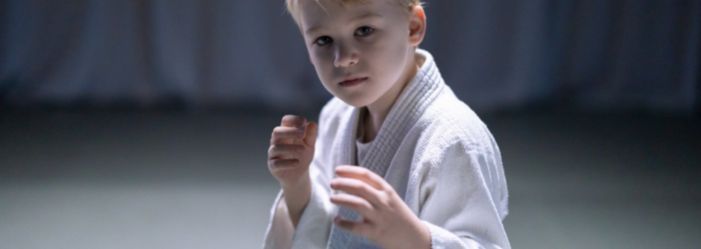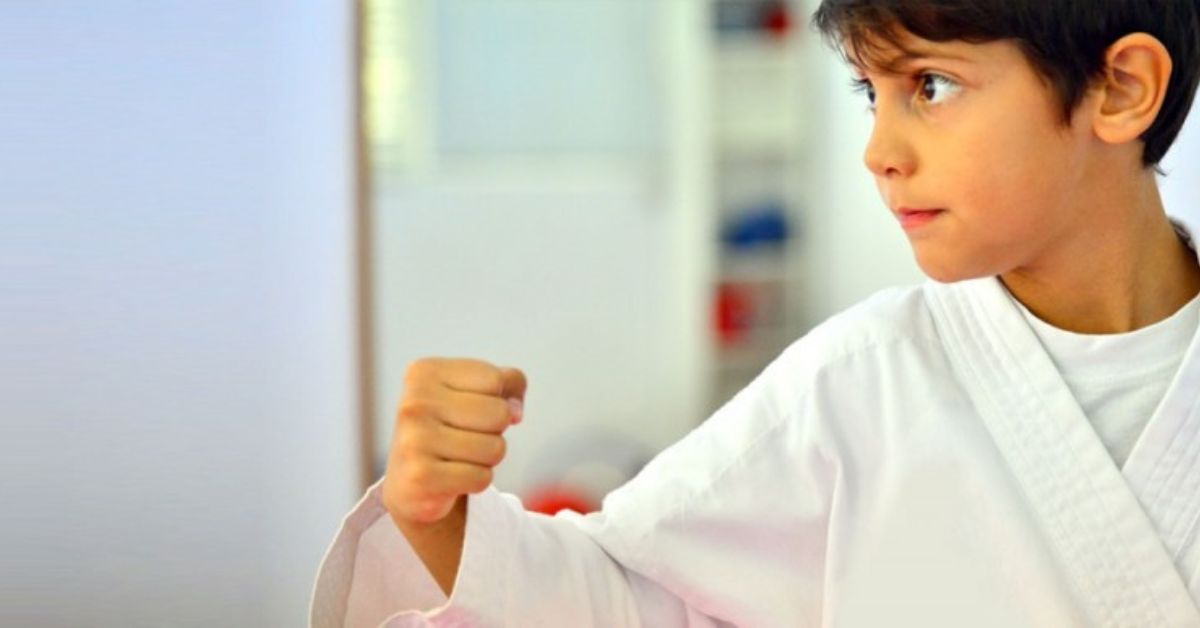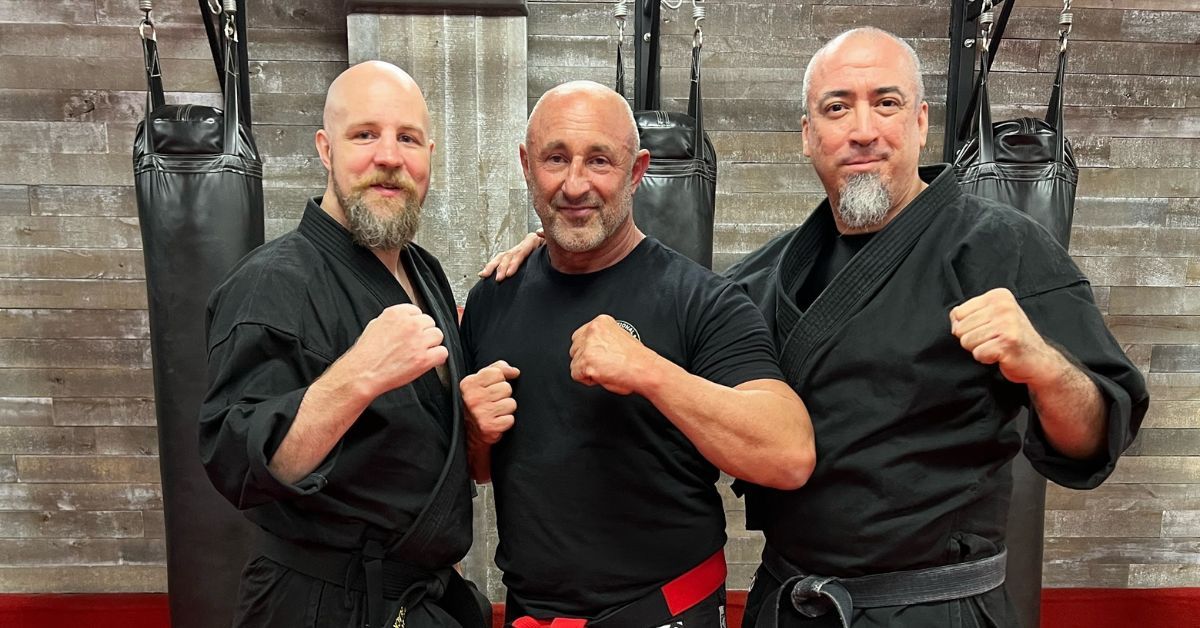Martial Arts: Does It Help or Hurt Your Child's Behavior?

Setting the Stage for Concerned Parents
Your child comes home from school, backpack slung over their shoulder, but their usual excitement is missing. You ask about their day, and they give you a half-hearted "It was fine." You can't help but wonder what's going on and with all the bullying being reported you can't help but have a concerned mind. Then, you remember the conversation you had with another parent who mentioned enrolling their child in martial arts. You’re intrigued, but you’ve also heard that martial arts can make kids more aggressive. So, the question pops into your mind: Will martial arts help or hurt my child's behavior?
As parents, we all want the best for our kids, and it's natural to wonder if signing them up for martial arts will help them become more disciplined or if it will turn them into little fighters. In reality, martial arts is about much more than learning how to throw a punch—it's about building character, confidence, and respect. Let’s explore how martial arts can impact your child’s behavior and whether it’s the right choice for your family.
The Real Purpose of Martial Arts: It's Not What You Think
The Philosophy Behind Martial Arts
First things first, let’s clear up a common misconception. Martial arts isn’t just about learning to fight. In fact, martial arts is rooted in principles of discipline, respect, and self-control. Think of it less as combat training and more as a way to build a strong foundation for your child’s character. Life skills so to speak.
Martial arts teachers from various disciplines—whether it’s karate, jiu-jitsu, or taekwondo—teach that true strength comes from within. We emphasize that martial arts should only be used for self-defense and that avoiding conflict is always the goal. My own experience as an instructor has shown me that kids who practice martial arts often develop a sense of peace and calm that extends far beyond the dojo.
Teaching Responsibility, Not Recklessness
One of the biggest fears parents have is that their child will become more aggressive after taking martial arts classes. The truth? Martial arts actually teaches responsibility. When kids learn techniques, they’re also taught the responsibility that comes with knowing how to defend themselves. They understand that these skills are not to be used recklessly, but with caution and care.
I remember one student, who we'll call Timmy, who was always getting into trouble at school before joining our class. His parents were worried that martial arts would give him more tools to misbehave. But after a few months of training, they saw a complete change in his behavior. Timmy learned to channel his energy constructively and became more aware of the impact of his actions. Instead of getting into fights, he started using his newfound discipline to help calm down situations before they escalated.
How Martial Arts Positively Shapes Behavior
Building Self-Esteem Through Achievement
One of the most incredible things about martial arts is how it boosts a child’s self-esteem. In martial arts, progress is tangible. Kids earn belts, stripes, and badges that reflect their hard work and dedication. This sense of accomplishment is a powerful confidence-builder.
I once had a student who was incredibly shy when she first joined the class. She struggled with self-confidence and was afraid to speak up for herself. But after earning her first belt, something changed. She started to believe in herself, both on and off the mat. Her teachers noticed the difference, too—she began participating more in class and wasn’t afraid to raise her hand anymore. Her mom told me that martial arts had given her the confidence to express herself, and that confidence spread to every aspect of her life.
Discipline: The Backbone of Martial Arts
Discipline is the cornerstone of martial arts training. It’s not just about memorizing techniques; it’s about instilling habits of focus, patience, and perseverance. In martial arts, kids learn to listen, follow instructions, and respect their instructors and peers.
This discipline often extends to other areas of life. One parent shared with me how her son struggled with following rules at home. But after a few months of martial arts, she noticed that he started making his bed without being asked and even helped with chores more willingly. The structured environment of martial arts taught him the importance of discipline and responsibility, which carried over to his daily routine. You can imagine how ecstatic the parents were.
Channeling Energy into Constructive Outlets
Every parent knows that kids have boundless energy, and without the right outlet, that energy can sometimes manifest as hyperactivity or misbehavior. Martial arts provides a controlled environment where kids can release their energy in a positive, and productive, way.
I’ve seen firsthand how martial arts helps high-energy kids focus their minds and bodies. One student of mine was constantly bouncing off the walls before he started training. His parents enrolled him in martial arts as a way to help him manage his energy. Through regular practice, he learned how to channel his energy into mastering techniques and forms. Not only did his behavior improve at home, but his teachers also noticed that he was more focused in the classroom.
Addressing Common Misconceptions About Martial Arts and Aggression
Does Martial Arts Make Kids More Aggressive?
Let’s tackle one of the biggest misconceptions head-on: Does martial arts make kids more aggressive? The short answer is no. In fact, martial arts teaches children how to control their aggression, not act on it.
Research has shown that children who practice martial arts are often less aggressive because they’re taught to use their skills responsibly. Rather than promoting violence, martial arts schools emphasize respect, humility, and peaceful conflict resolution. Kids learn that true strength isn’t about overpowering others—it’s about controlling oneself and having empathy for others.
An old student of mine, from a couple of years ago, had been involved in several fights at school before joining our class. His parents were worried that martial arts might make things worse. But to their surprise, martial arts had the opposite effect. He learned to manage his anger and frustration through the discipline of training. He also felt comfortable with us whenever he needed to talk about challenges at school. Over time, he stopped getting into fights altogether. Instead, he used the confidence he gained from martial arts to stand up for himself without resorting to aggression.
How Martial Arts Teaches Conflict Resolution
Another powerful aspect of martial arts is its focus on conflict resolution. Martial arts teaches kids to avoid physical confrontations whenever possible. They learn how to handle situations calmly and use their words and body language to defuse conflicts before they escalate.
One of my favorite stories is about Sarah. She was being teased at school and came to me for advice. I taught her a few verbal strategies to handle the situation without resorting to physical action. The next day, Sarah proudly told me how she had stood up to the bully by confidently telling him to stop and walking away. The teasing ended, and Sarah didn’t have to throw a single punch. This is the kind of empowerment that martial arts can provide.
The Role of the Instructor: Finding the Right Guide
Why the Instructor Matters More Than You Think
The instructor plays a critical role in shaping your child’s experience with martial arts. A good instructor isn’t just teaching kicks and punches—they’re mentoring students, teaching life lessons, and modeling positive behavior.
When choosing a martial arts school, it’s important to find an instructor who focuses on character development alongside physical training. A great instructor will emphasize respect, discipline, and integrity, ensuring that students understand the bigger picture of martial arts.
What to Look for in a Martial Arts Program
Not all martial arts schools are created equal, so it’s essential to find one that aligns with your values. Look for programs that prioritize personal growth, positive reinforcement, and a supportive environment. Ask about the school’s approach to behavior, discipline, and conflict resolution.
When you visit a school, take note of the atmosphere. Are the students happy and engaged? Does the instructor create a welcoming and respectful environment? These are all indicators of a program that will support your child’s behavioral development.
The Verdict on Martial Arts and Children's Behavior
So, does martial arts help or hurt your child’s behavior? The evidence overwhelmingly points to the fact that martial arts, when taught in the right environment, can have a profound positive impact on your child’s behavior. Martial arts instills discipline, builds confidence, and teaches respect—all while providing a healthy outlet for energy and emotions.
If you’re considering enrolling your child in a martial arts program, know that you’re giving them more than just the ability to defend themselves. You’re equipping them with the tools they need to navigate life with confidence, self-control, and resilience. That’s a gift that will benefit them long after they leave the dojo.
As I’ve seen time and again, martial arts can transform a child’s life. Whether it’s helping them channel their energy, improve their focus, or stand up to a bully with confidence, the benefits of martial arts extend far beyond the mat. It’s not just about kicking and punching—it’s about developing their character, discipline, and respect that will serve your child for years to come.
So, if you're on the fence, I encourage you to give it a try. Martial arts could be the key to unlocking your child's full potential, helping them become the best version of themselves both inside and outside of the dojo.
If you’d like to learn more about how martial arts can help your child, don’t hesitate to reach out. We offer a FREE WEEK trial, so your child can experience it firsthand before making any commitments. Remember, every black belt was once a beginner, and with the right guidance, your child can start their journey toward becoming a more confident, disciplined, and well-behaved individual today.
Sincerely,
Sensei Kailer


